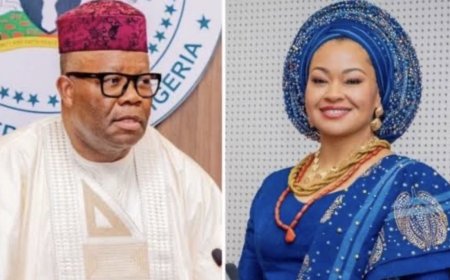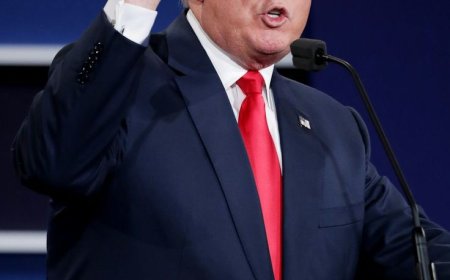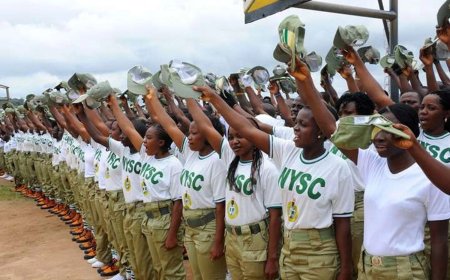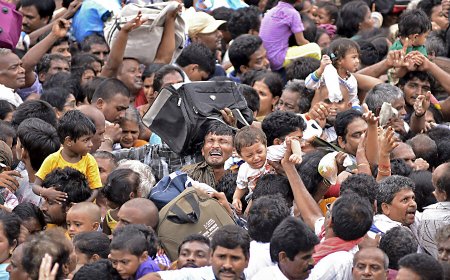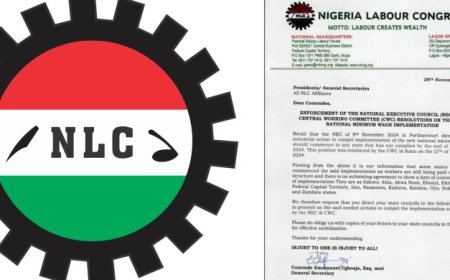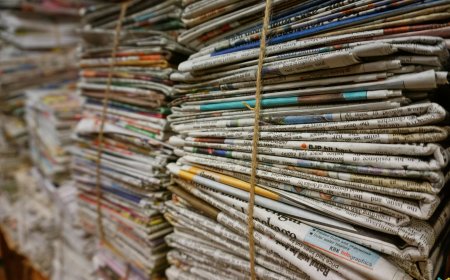NIGERIA’S DEMOCRATIC DEFICIT: AN EXAMINATION OF THE FAILURES OF DEMOCRATIC GOVERNANCE IN NIGERIA
Nigeria's democratic governance has failed to deliver due to leadership, corruption, socioeconomic disparities, and electoral irregularities, resulting in a democratic deficit. Nigeria's democratic deficit: Understanding the failures of democratic governance and the need for reform."
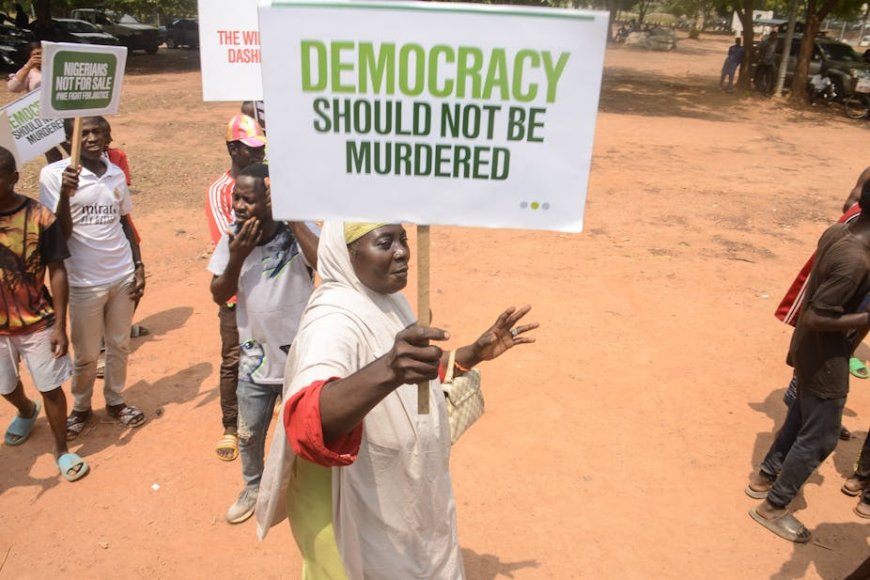
Democracy has been a system that has been in existence for a long period of time and it has been for some nations, the countries, the bedrock upon which their mantle of governance is based on. People often talk about countries "becoming" democracies, once they start to have relatively free and open elections. But democracy includes far more than just elections, and it really makes more sense to think about the will of the people idea, rather than about institutional or voting structures, when we are trying to assess how democratic a country is.
Officially becoming a recognized democratic state in 1960, Nigeria has exercised her governing power via her various actions and decisions. Looking at the face of the country after 63 and a half years, some of the failures have seem to be the face of the country. One of the failures of the democratic governance in Nigeria is her leadership. The failure of governance in Nigeria manifests in the declining capacity of political leaders to recognize systemic risks such as election fraud, terrorist attacks, herder-farmer conflict, armed banditry, and police brutality and put in place the necessary measures to navigate these challenges. But despite some successes, corruption and socioeconomic disparities within Nigerian democracy continue to run rampant. Since 1999, the democratic space has been dominated by political elites who consistently violate fundamental principles associated with a liberal democratic system, such as competitive elections, the rule of law, political freedom, and respect for human rights. The outcome of the 2019 and more recently, the 2023 presidential election further eroded public trust in the ability of the independent electoral commission to organize competitive elections unfettered by the authoritarian influences of the ruling class. This challenge is an indicator of the systemic failure in Nigeria’s governance system.
Corruption has taken over the day-to-day discussion and deliberation on issues relating to national growth and development in Nigeria. It has become a virus eating into the bones and marrow of every sector and structure of national policy and polities. It is crystal clear that if Nigeria fails to live above corruption and overcome it; it will not be long before corruption would end every hope of golden age of the nation. Situations where the members of each organization cannot give a clear overview of finances or allocate trillions to “ghost” projects, it raises question marks regarding the integrity of such organizations. The weak state of institutions in Nigeria is a critical factor contributing to its democratic deficit. The country lacks strong and independent institutions that can check the power of the executive branch and ensure accountability. The judiciary, for example, is often subject to political interference, making it difficult for it to uphold the rule of law. Similarly, the electoral commission has struggled to conduct free and fair elections due to a lack of resources and political pressure.
Bribery cases are seeming to be the way right now. One cannot get what is his right without paying someone “small change” to get it done. According to the National Bureau of Statistics, in 2023, the largest share of Nigerian citizens had contact with health care professionals and public utilities officers, at 30 per cent and 24 per cent respectively. Police officers came third, with a contact rate of 20 per cent. We have seen citizens get harassed for using their private car just because it is the model of the usual inter-state transport vehicles. It is more shocking when law enforcement agents pass scenarios when people are being harassed unfairly, and it doesn’t move them. Oe would think they imagine these things. When officers make up names of imaginary documents to find faults all in a bid to collect “something for the road”, it makes you wonder the law they protect.
As reported by Nigerians, corruption ranked 4th among the most important problems affecting the country in 2023, after the cost of living, insecurity and unemployment. This suggests relatively stable and high levels of concerns about corruption over time and compared to other concerns such as education or housing. Nigerians’ confidence in the government’s anti-corruption effort has been declining over time and across regions. While in 2019, more than half of all citizens thought that the government was effective in fighting corruption, in 2023, the share declined to less than a third of all citizens. The downward trend in the citizens confidence is observable across the entire country, with all six zones recording reductions of more than 10 percentage points between 2019 and 2023 in terms of the share of citizens who thought the government was effective in fighting corruption.
Elections in Nigeria are a disgrace to its original meaning and aim. Electoral irregularities are another major obstacle to democratic governance in Nigeria. These irregularities can include voter fraud, ballot tampering, and intimidation of voters. Such practices undermine the legitimacy of elections and erode public confidence in the democratic process. The prevalence of electoral irregularities has made it difficult for Nigeria to establish a fair and competitive political system. Using the recent 2023 elections, we saw three giant parties battle it out to secure the position of the Grand Commander of the Federal Republic (GCFR). Little or no eyebrows were raised when comments and videos of election experiences were circulating. Despite the invocation tribal clauses and in some areas the use of violent thugs, civilians still came out to exercise their rights in the hope of a better tomorrow, while some of them will not be able to see the end of the day. The sacrifice of its citizens on many occasions has often been met with bloodshed by the very people who swore to defend the people.
The economy which we though could never has broken the ceiling to shoot to the sky. The exchange rate of the country’s currency has been so poor, it is beginning to melt like wax before the “fiery” currencies. Fuel price and fuel shortage seems to be the latest on today’s episode of “Nigeria, what next?”. Buying petrol at the rate of 650 is something which fill half of a 10-litre container under the office of former president, Goodluck Ebele Jonathan, but here we are achieving new heights of poverty.
Nigeria's democratic deficit is a complex issue with multiple contributing factors. The dominance of political elites, corruption, electoral irregularities, and the weak state of institutions have all played a significant role in hindering the country's democratic development. Addressing these challenges will require a multifaceted approach that involves strengthening institutions, promoting accountability, and increasing the participation of ordinary citizens in the political process.
What's Your Reaction?







